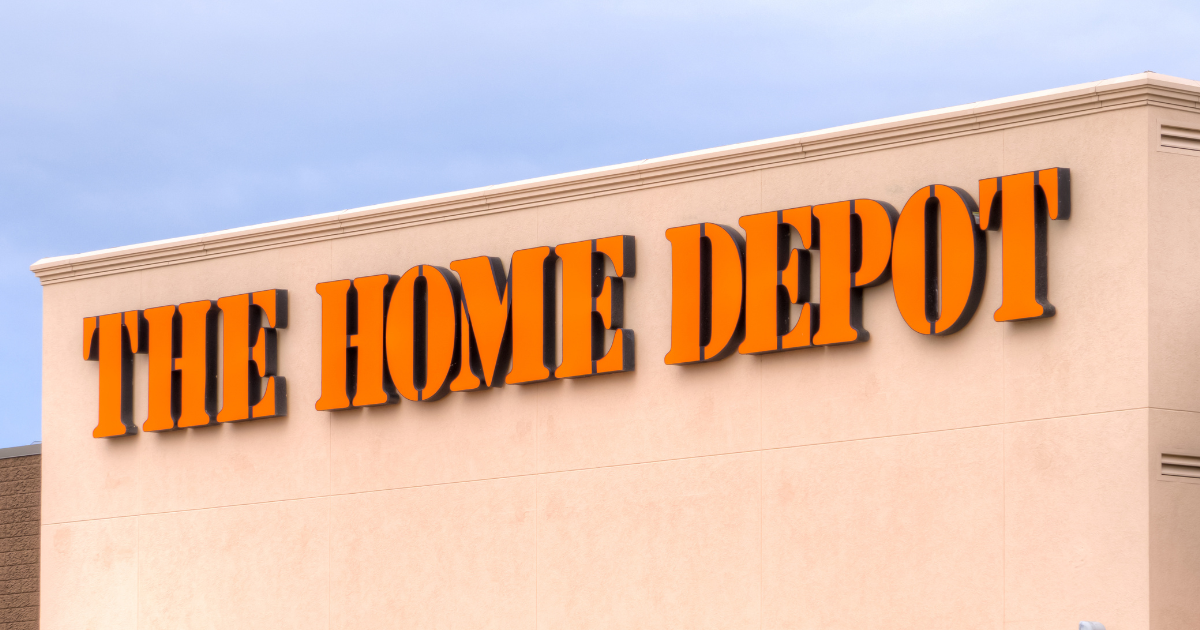Nearly one year ago today, train cars containing 887,400 pounds of vinyl chloride—the key building block for polyvinyl chloride (PVC) plastic—derailed and were subsequently burned, setting off a major environmental health disaster that sickened area residents and first responders, killed fish and other wildlife, and contaminated East Palestine, Ohio, and nearby communities.
This Saturday, February 3 is the one-year anniversary of this tragedy.
One year later, the people of East Palestine continue to fight for justice, increasing their calls on President Biden to issue an emergency order so they can receive the assistance they so desperately need and deserve.
As I write this, I am preparing to travel to Ohio this weekend, to stand shoulder-to-shoulder with the families of East Palestine and neighboring communities that are still clamoring for President Biden to step up and meet their needs.
Connecting the dots: Ohio train derailment and The Home Depot
“Investigating the widespread transportation of vinyl chloride provides critical evidence that people across the nation are all at risk of toxic vinyl chloride pollution. My community in East Palestine, Ohio is not an isolated incident but rather a symptom of a larger issue.” – Jess Conard, Appalachia director for Beyond Plastics and East Palestine, Ohio resident
Leading up to the anniversary, this past week we released a new report that revealed for the first time that tens of millions of pounds of vinyl chloride are regularly shipped by rail across the country, from OxyVinyls’ chemical plants in Texas to PVC plastics factories in New Jersey, Illinois, and Niagara Falls.
Along with our partners at Material Research, we estimate that more than 200 train cars carrying 36 million pounds of this cancer-causing chemical travel the nearly 2,000-mile journey at any moment, putting more than an estimated three million U.S. residents and thousands of schools at risk. The report’s been making headlines, from the Washington Post to One America News Network.
Where are they traveling to?
What most people probably don’t realize is that the train cars that derailed in East Palestine were on their way to a vinyl plastics factory in New Jersey. This wasn’t the first time train cars carrying vinyl chloride derailed and sickened residents and first responders before they made it to this very same OxyVinyls plastics plant. A similar disaster happened in Paulsboro, NJ in 2012. OxyVinyls ships vinyl chloride to these same factories day in and day out, putting communities from Texas to New Jersey at risk.
What are they using these chemicals for?
Vinyl chloride is used to make PVC (vinyl) plastic, most of which ends up in building materials like vinyl flooring sold at retailers like The Home Depot. While this plastic may seem cheap at the check-out aisle, it comes at a high cost to our health and environment—as we saw in Ohio this past year, and over the years in many other communities, from Paulsboro, New Jersey to Houston, Texas to Mossville, Louisiana.
As we prepare to remember the East Palestine anniversary and stand in solidarity with the residents of East Palestine, we are also calling on The Home Depot to step up and phase out this dangerous plastic. That’s why we sent a letter to The Home Depot’s CEO Edward Decker urging the company to take action on this unnecessary poison plastic and drive the market to safer solutions.
How The Home Depot has an opportunity for leadership once again
Why are we asking The Home Depot to take this action, you may wonder?
Over 99% of vinyl chloride is used to make PVC plastic. The number one use of polyvinyl chloride (PVC) is in building materials, and The Home Depot is the largest home improvement retailer in the U.S. and the world. As the world’s largest home improvement retailer, they have a responsibility to ensure the building products they sell are safe and are not putting communities like East Palestine at risk.
We know change is possible because The Home Depot has shown leadership over the last 10 years since we first started engaging The Home Depot on these issues. First, they banned phthalates in flooring. Then they launched a chemicals policy, and eventually banned other chemicals like methylene chlorine in paint strippers, PFAS in carpets and rugs, and more.
They’ve done it before, and they can do it again.
While phasing out PVC might seem like an enormous task, we are confident The Home Depot can be a leader once again. After all, safer alternatives to PVC are readily available, from linoleum flooring to fiber-cement siding to recycled copper piping.
The people of East Palestine, Ohio were forced to learn the hard way that tank cars of vinyl chloride rumbling through your town can mean disaster for your health and your community. We can’t just sit idly by and wait until the next disaster strikes.
Retailers like The Home Depot need to heed this lesson and move from PVC to safer materials that don’t put communities at risk.





